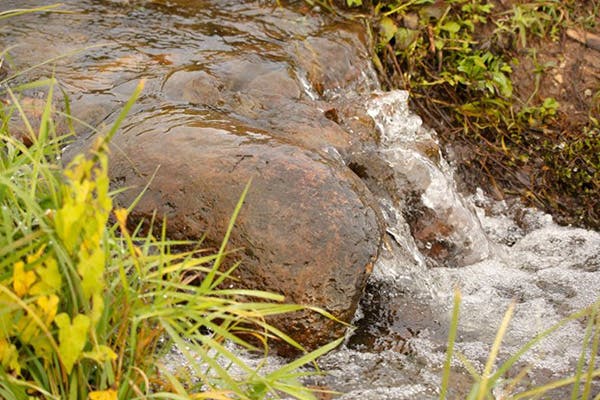🌟 New Arrival! Upgrade Your Water with Our Advanced Pitcher Filter. Shop Now
January 2023
Everything You Wanted to Know About Fluoride in Water
An Unbiased Look at Fluoride in Water
For decades, fluoride has been proven to help prevent tooth decay and improve dental health. Putting fluoride in public water supplies is lauded by the American Dental Association as a proven, cost-effective way to improve oral health. Meanwhile, the Centers for Disease Control and Prevention (CDC) has said adding fluoride in public water systems is one of the 10 “great public health achievements” of the 20th century.
Since the first city began community water fluoridation to prevent tooth decay in 1945, we’ve seen the benefits of fluoride spread throughout the world. Today, roughly 210 million people in the U.S. alone have fluoride added to their community water systems.
But should fluoride be added to your water supply? Many question whether fluoride in water is warranted, and there’s intriguing evidence to support removing it. In 2015, for the first time in 53 years, the U.S. Public Health Service lowered the recommended level of fluoride in water from a range of 0.7-1.2 mg/L to a flat 0.7 mg/L (or 0.7 parts per million — also known as ppm).
Why Is Fluoride in Water?
Fluoride is naturally occurring in most water sources. It comes from the erosion of rocks in groundwater before reaching public water supplies. But without fluoride supplementation, the amount of fluoride in the water supply varies from place to place, depending on the path water takes to get to you.
In 1945, Grand Rapids, Michigan, was the first city in the world to add fluoride to its drinking water in hopes of preventing tooth decay. After 11 years of the practice they saw a 60% decrease in dental caries. With the success of the town, the practice spread throughout the country and parts of the world.
Throughout the 1960s, the health benefits of this cavity intervention were widespread and celebrated by many U.S. public health agencies. Today, support for water fluoridation has gone beyond U.S. agencies, garnering the support of the World Health Organization (WHO).
However, even the countries and communities that didn’t fluoridate their water saw similar decreases in tooth decay.
Where Does Fluoride in Our Water Come From?
Fluoride is a mineral that’s found in rocks and soil. Almost all natural water sources have some amount of fluoride content, but many sources have less of it than is recommended for optimal dental health benefits today. This is why many cities add fluoride up to the recommended level of 0.7 mg/L.
Is Fluoride in Well Water?
Yes. Fluoride is found in well water. Because the water that comes out of private wells doesn’t go through a treatment plant where fluoride levels can be adjusted, the amount in a private well will vary depending on the surrounding environment. You should have your water tested periodically for impurities, including fluoride. This is particularly important if you have children. For more information on private wells and testing, check out the EPA’s page on private wells.
Is Fluoride in Spring Water?
Yes. Fluoride is found in spring water. Similar to well water, the amount of fluoride in spring water will depend on the surrounding environment of the spring. Usually the amount found in spring water is much lower than what’s added to public water supplies for dental health purposes. In fact, drinking spring water is one way the Fluoride Action Network recommends if you want to limit your exposure to fluoride.
Does Bottled Water Have Fluoride?
Usually, bottled water will have some fluoride, which comes from wherever the company sources its water. You can call the phone number on the label to find out how much fluoride is in the water. There are some bottled water companies that sell fluoride-free water, while others add fluoride to their water.
According to the U.S. Food and Drug Administration (FDA), bottled water companies can add enough fluoride into their product to bring the total fluoride up to tap water standards of 0.7 mg/L. Any added fluoride must be reported on the label of the water bottle.
Should Water Be Fluoridated?
The sources of fluoride in our lives are numerous. We have dental products like fluoride toothpaste, fluoride mouth rinse, fluoride supplements, and we have naturally occurring fluoride in our water sources. With all of these options for protecting our dental health, there is a debate on whether we also need to consume fluoride-enhanced water as well.
What Are the Cons of Fluoride in Drinking Water?
There’s a lot of evidence to tell us fluoride can improve our dental health. Easy access to cheap fluoride has revolutionized dentistry by making cavities a preventable occurrence. But does it need to be added to our drinking water to get those benefits?
Here are some of the main concerns of opponents to fluoride in water:
Outdated/Flawed Research
While the ADA reports that there have been thousands of studies proving that fluoridated water is an important tool in the fight against poor dental health, reviews of those studies — which were mostly done before 1975 — reveal that most seem to have a major flaw. Namely, they didn’t take into account the other fluoride usage that became popular around the same time.
Improvements Without Ingestion
Across the world, the addition of fluoride toothpaste increased in places that didn’t fluoridate their water and those populations saw similar declines in instances of cavities and caries. In fact, topical application is more beneficial in cavity prevention than ingestion for existing teeth.
Can Fluoride Make You Sick?
Fluoride can make you acutely sick and even be considered lethal in a large enough dose. There have been many cases of accidental fluoride poisoning. Most of these cases come from ingestion of fluoride-based dental products or pesticides. In many areas of the world that rely on groundwater wells as a main source of freshwater, sickness from fluoride toxicity has been a problem.
What Are Side Effects of Fluoride?
While proponents of fluoride in water argue that low concentrations of fluoride, like the current recognized optimal level of 0.7 milligrams per liter, are unlikely to create negative health effects, fluoride is a known neurotoxin. Some research suggests even these low levels may be too high for healthy brain development. Let’s look at this and other side effects of fluoride toxicity.
Brain and Nervous System
There are many studies linking various levels of fluoride intake to impaired brain development in children. When Harvard researchers did a meta-analysis of 27 earlier studies of Chinese children, the data seemed to indicate children in areas with higher fluoride water concentrations had lower IQs than those who lived in areas with lower fluoride.
A 2019 updated review of developmental fluoride neurotoxicity by the Harvard team concluded:
“Neurotoxicity appeared to be dose-dependent, and tentative benchmark dose calculations suggest that safe exposures are likely to be below currently accepted or recommended fluoride concentrations in drinking water.”
Dental Fluorosis
A mostly cosmetic condition that causes pitting, brown discoloration, and white spots on tooth enamel. This happens when a child whose teeth are still developing ingests too much fluoride. The ADA warns that giving your child baby formula reconstituted with fluoridated water can cause mild fluorosis and recommends breastfeeding or using fluoride-free water to avoid this.
Skeletal Fluorosis
This is a crippling bone disease that occurs in people who have chronically over-consumed fluoride. Fluoride can build up inside bones and cause abnormal growth of bone tissue. Millions of people in the world are currently dealing with bone deformations and crippling pain from skeletal fluorosis, but until recently this wasn’t thought to be an issue in the U.S.
Health authorities used to think you had to consume 20-80 mg of fluoride per day for decades for skeletal fluorosis to occur. We now know it's far less. Just 6 mg per day is enough to start experiencing early stage symptoms. In the most severe cases, skeletal fluorosis is often misdiagnosed for years. In its early stages it’s even more challenging to diagnose properly since physical changes to bones don’t occur until later stages.
Bone Fractures
Research began in the 1960s to determine if fluoride could be used to strengthen bone tissue, but the FDA banned fluoride as a bone-strengthening treatment when the trials resulted in more fractures rather than less. This was most often noticed with hip fractures.
While many of these tests (and many done since) were done at higher doses than our water supply is currently set to, according to the Fluoride Action Network, even testing at current levels has left room for concern. That’s especially true for those with advanced kidney disease who are more sensitive to fluoride exposure. People with kidney disease cannot properly excrete fluoride, so more is stored in their bones.
Kidney Disease
While it’s known that those with impared kidney function are more susceptible to the effects of fluoride toxicity, animal studies point to the possibility that fluoride can potentially lead to kidney disease. In some cases, kidney damage has been reversed by switching to fluoride-free water.
Hypothyroidism
When your thyroid produces too little hormone, this is known as hypothyroidism.
In the 1950s doctors prescribed fluoride to suppress thyroid function in patients with overactive thyroids. It’s been found that just 2-5 mg of fluoride per day over a series of months is enough to suppress thyroid function. This is well within the 1.6-6.6 mg the average American with fluoridated water has been consuming since the early 1990s.
Symptoms of hypothyroidism include fatigue, obesity, joint pain, infertility, and heart disease, according to the Mayo Clinic.
A 2015 U.K. study comparing cities with high instances of hypothyroidism with the amounts of fluoride in the water supply, seemed to back up the link between fluoridated water and hypothyroidism.
How to Reduce Fluoride in Water
A lot of research has been done on the pros and cons of fluoridated water, and a lot more is left to be done. While you may not have control over your local water policies or the source water your city uses, you can choose whether you want fluoride to come out of your tap by using water filters that meet your needs.
Do Water Filters Remove Fluoride?
There are many types of water filtration systems but only three of them will remove fluoride from water. The three water filter types that will remove fluoride from your water are:
- Reverse osmosis
- Deionizers
- Activated alumina
You can also distill water and remove most, if not all, of the fluoride in your water, but distilled water lacks essential trace elements so there’s a trade-off.
Other popular water filters like the activated charcoal varieties found in popular pitcher models will not remove fluoride from water.

Should You Have Fluoride-Free Water?
With our assortment of whole home and under-counter water filtration systems, HomeWater gives you fresh-tasting water while leaving the fluoride in water decision up to you.
If you want great-tasting, pure water with the cavity-fighting benefits of fluoride intact, reach for our American-made Under-Counter 2-Stage Water Filter. It removes contaminants like chlorine, rust, and lead while helping you keep that smile healthy.
If you want the ultimate in water filtration, check out our 4-Stage Under-Counter Filtration System with reverse osmosis. This more advanced filtration system provides you with the same great-tasting water as our 2-stage, but also removes fluoride, heavy metals, and more.
Whatever you choose, you get delicious, clean water that will have you reaching for more.

